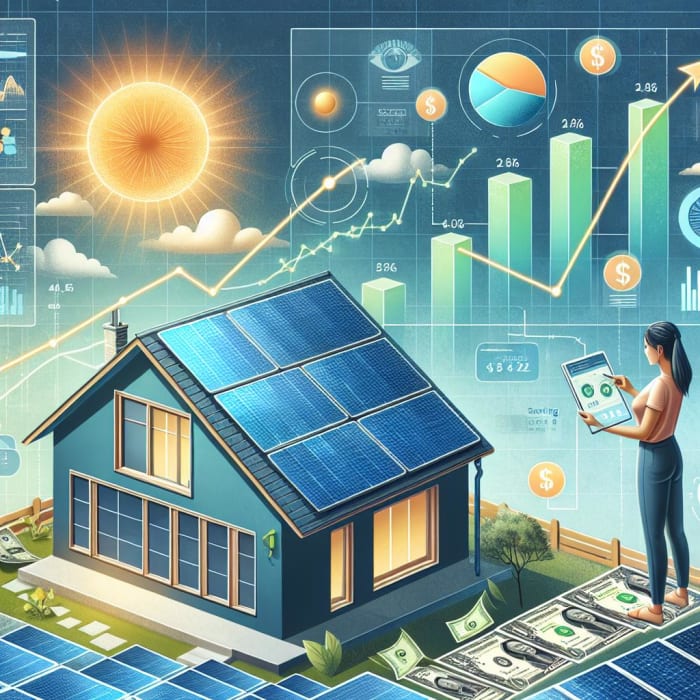
One topic that people talk about a lot these days is solar panels. Because solar energy has the potential to save people a significant amount of money over time, its economics are quite important. Over time, these solar panels can lower people's utility bills by generating electricity from the sun.
The initial cost of solar panels is one of the primary factors that people ponder about. Now, this can change based on the system's size and the panels' quality. However, many people discover that it eventually pays for itself, even though the initial purchase could be a little bit exorbitant. People can quickly recover their solar panel investment with the energy savings they provide in a matter of years.
One more thing that people take into account when discussing the economics of solar panels is the availability of tax breaks and rebates. Installing solar panels on your property can often result in tax credits or rebates from the government. This can help defray the initial investment and lower the cost of solar panels for more people.
Solar panels also have the ability to raise a property's value. When selling their property, those who had solar panels installed on their roof frequently discover that it is now worth more. For those looking to raise the value of their house and turn a profit when they sell, this can be a huge help.
The savings on electricity bills is another aspect of solar panel economics. People can produce their own electricity with solar panels, reducing their dependency on the grid. People won't have to pay the utility company as much for electricity, which can save them a lot of money on monthly energy bills.
Solar panels can also aid in the reduction of greenhouse gas emissions. People may lessen their dependency on fossil fuels, which release harmful pollutants that contribute to climate change, by using the sun's energy to generate power. Future generations can benefit from the pure, renewable energy provided by solar panels, which also helps preserve the environment.
An further advantage of solar panels is their capacity to produce revenue by selling extra electricity back to the grid. People can sell any extra electricity they produce from their solar panels back to the utility company through net metering programs in select locations. For those who own solar panels, this can offer an extra revenue stream.
Furthermore, solar panels need little upkeep, which can ultimately result in cost savings for homeowners. After installation, the only maintenance needed for solar panels is routine cleaning and sporadic inspections. This may lower the total cost of owning and maintaining a solar energy system.
Furthermore, solar panels' technology is always improving, which implies that they will eventually become more economical and efficient. It is anticipated that the price of solar panels will continue to drop as technology advances, making them even more accessible to more people.
When discussing the economics of solar panels, it's also critical to take into account the potential for job creation and economic expansion within the solar industry. Installers, producers, and other related jobs are in greater demand as more people choose to use solar panels. This may contribute to economic growth and open up new employment prospects for those working in the solar sector.
To sum up, the economics of solar panels is a complicated topic that takes into account a number of variables, such as initial expenses, tax breaks, energy savings, and environmental advantages. Installing solar panels can be an affordable option for people to lower their electricity costs, raise the value of their homes, and contribute to environmental protection. People may decide whether or not solar panels are a wise investment for them and their family by taking into account all of these variables.
Comments
Post a Comment